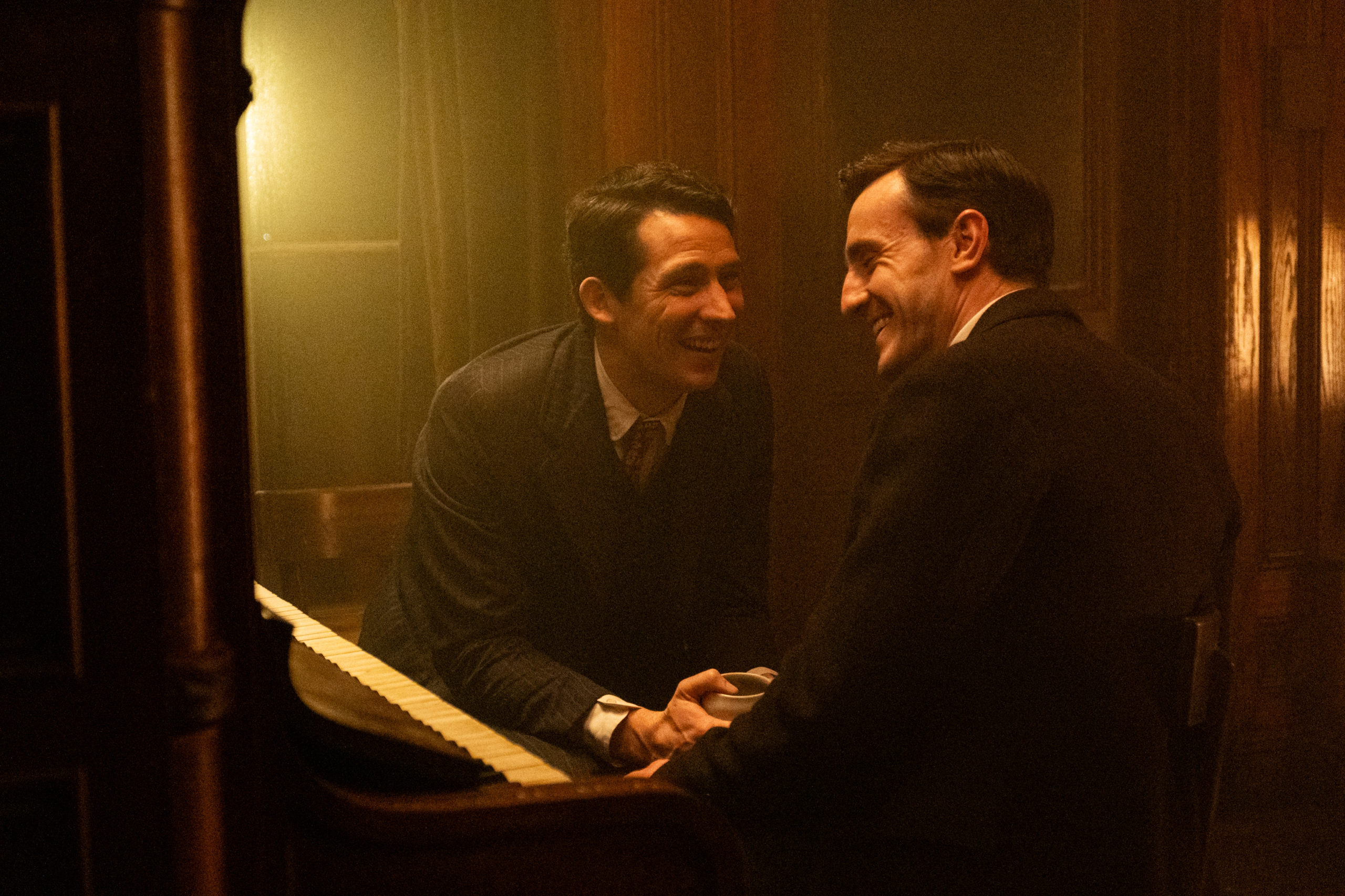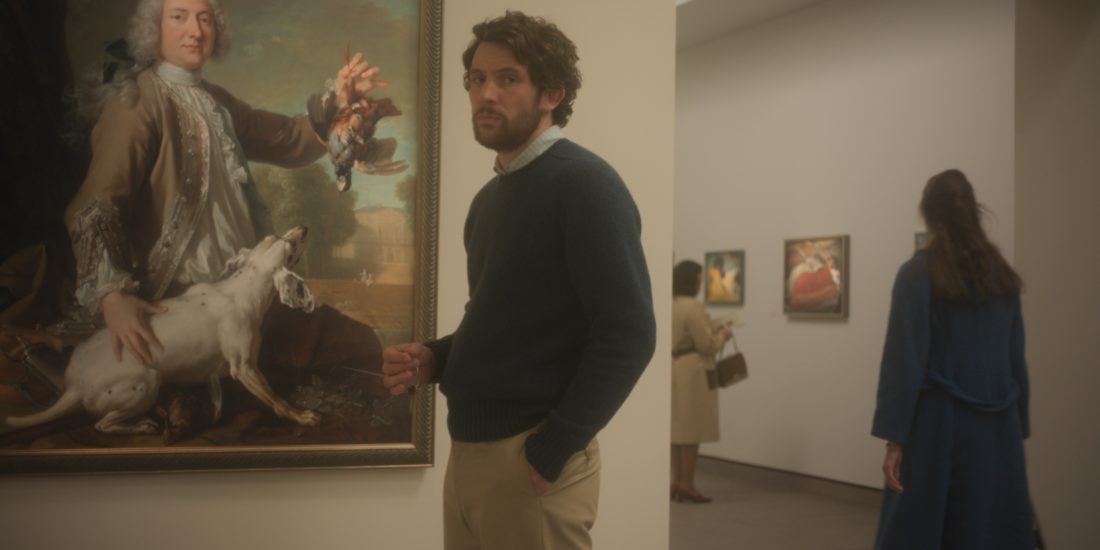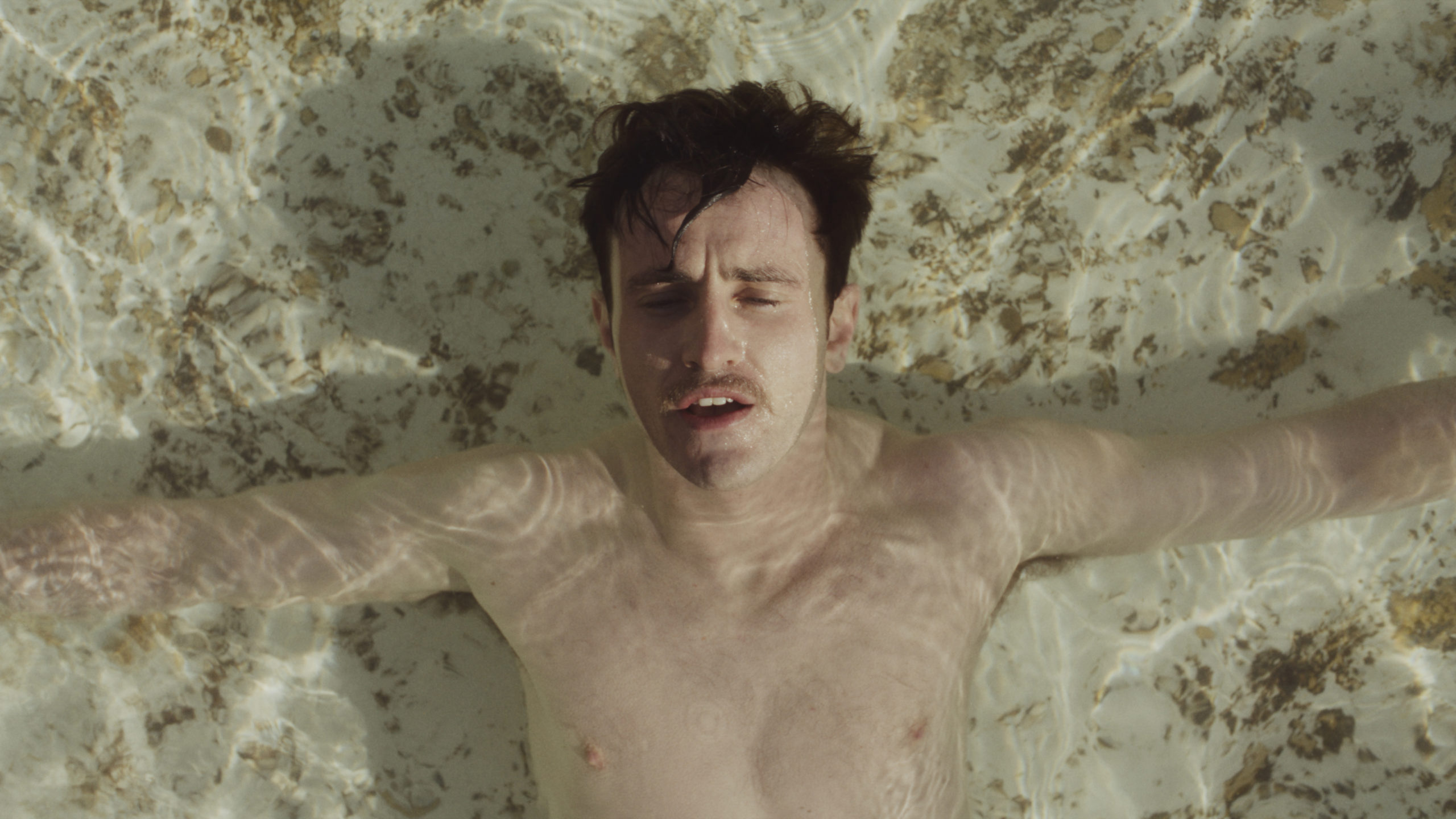
What if one’s first love, one’s great love, and one’s last love are all in one, and all too soon in one’s life? What is it to live a life that is an echo? What does it sound like, in retrospect? — Oliver Hermanus
A note-perfect transference from page to screen, Oliver Hermanus’s new film The History of Sound—written by Ben Shattuck from two of his interrelated short stories—concentrates the promise of its title into an aching minor key. As Shattuck originally described the first time Lionel (Paul Mescal) laid eyes on David (Josh O’Connor), in a pub in Boston in 1917: “He was across the room, at the piano. I remember watching how his shirt stretched and slacked across his back.” In the film, Lionel turns to catch David playing and singing a familiar tune, but he isn’t only listening and David’s back isn’t all he sees. A native of rural Kentucky and a talented singer, Lionel is in town attending the New England Conservatory of Music, an experience no doubt enhanced by his synesthesia—much of what he hears is accompanied by imagined colors and sometimes a taste on the tongue. “It never occurred to me that music was only sound,” he avers, and when he joins David for an impromptu rendition of “Silver Dagger,” a spectrum opens.
David—“a thousand songs in his head”—has an obsession beyond mere musicology. He’s serious about his work as a field collector of folk melodies and stories, but irreverent and expedient about nearly everything else. “Bed. Walk me home,” David declares once they’ve had many drinks and sang many songs and closed down the pub. Dawn is breaking as they reach David’s steps. “Come in for some water.” In addition to the obvious sexual attraction, Lionel discovers, through obedience, someone who can draw him out of his shell.
Then the draft for the Great War is called. David shows up in his uniform before shipping off. Lionel, barred from participating because of poor eyesight, tells David, “write, send chocolate, don’t die,” and then returns to his father and mother in Kentucky. After Armistice Day and his return to the States, David summons Lionel to Maine to join him on a song-gathering tour. Lugging a wax-cylinder recorder from homestead to homestead, these are the happiest days of Lionel’s life. But something is amiss, and David refuses to talk about his wartime experience. Once the tour—and the first half of the film—are over, they part. Lionel writes David a letter every month, but he comes to believe that they may not have been received as intended.
Hermanus:
I’ve been living with this film, this story, for five years. This film has been a personal and defining journey; it has moved me to a new country, educated me about the power of music and song, it has conjured a re-evaluation of love and the bonds that last a lifetime.
[This] is not simply the story of queer lives hidden due to a time of denial, of shame and secrecy. It is the story of a man’s life, expressed through the power of sound—as memory, as emotion… As family.
Made with a deep affection for cinema that does not shout or scream its intention, our film invites you to enjoy song and spirit, to celebrate life in all its wonder—its losses, its grief, its remembrance, and most of all, its undeniable and indelible mark: love.
The History of Sound is now streaming on Mubi. See link below for details.
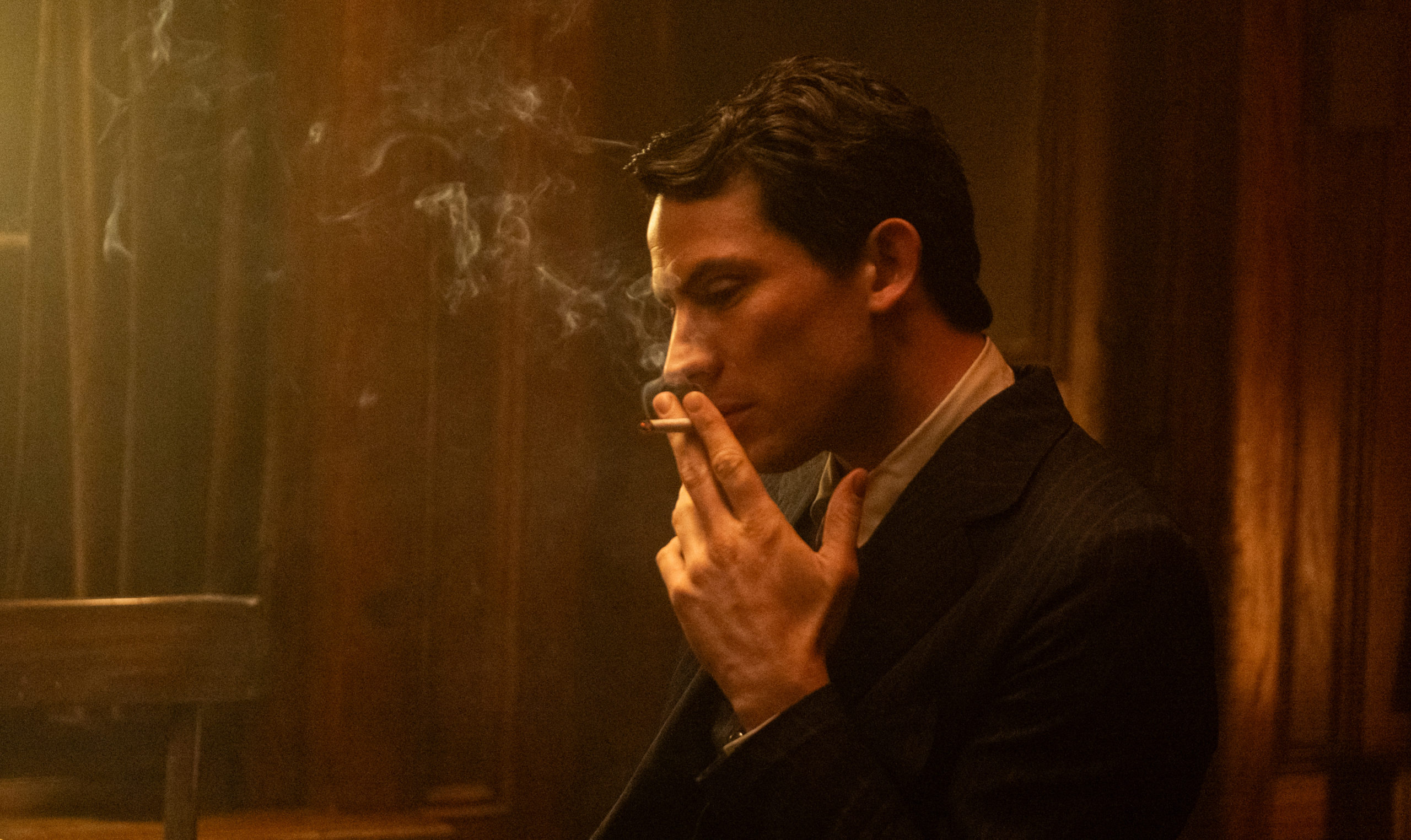

THE HISTORY OF SOUND
Directed by Oliver Hermanus
Written by Ben Shattuck
Streaming on Mubi:
In theaters September and October 2025:
Los Feliz 3
1822 North Vermont Avenue, Los Angeles
Laemmle Glendale
207 North Maryland Avenue, Glendale
Alamo Drafthouse
700 West 7th Street, downtown Los Angeles
drafthouse.com/los-angeles/the-history-of-sound
AMC Century City
10250 Santa Monica Boulevard, Los Angeles
amctheatres.com/the-history-of-sound
Monica Film Center
1332 2nd Street, Santa Monica
AMC Burbank 16
125 East Palm Avenue, downtown Burbank
amctheatres.com/the-history-of-sound
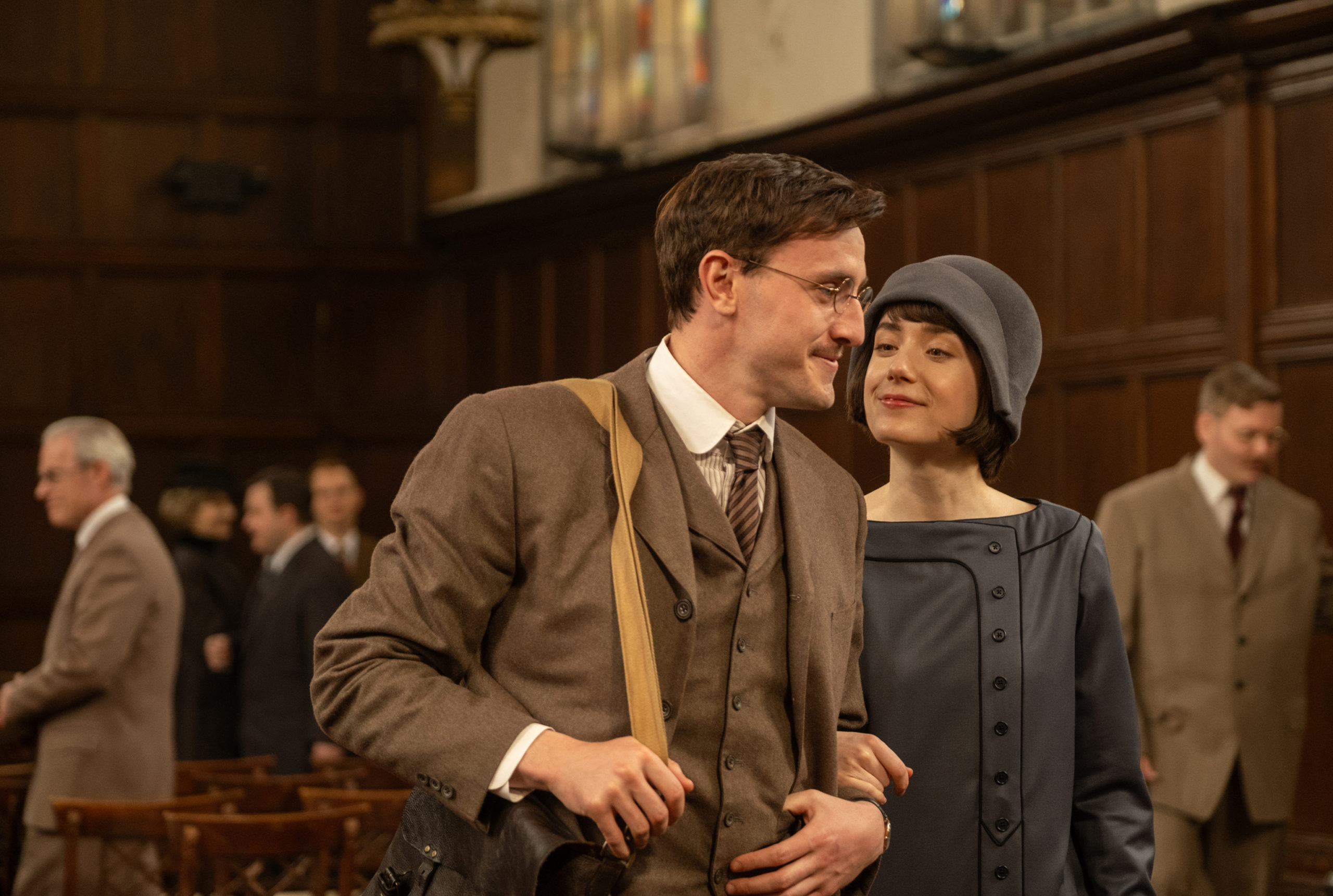
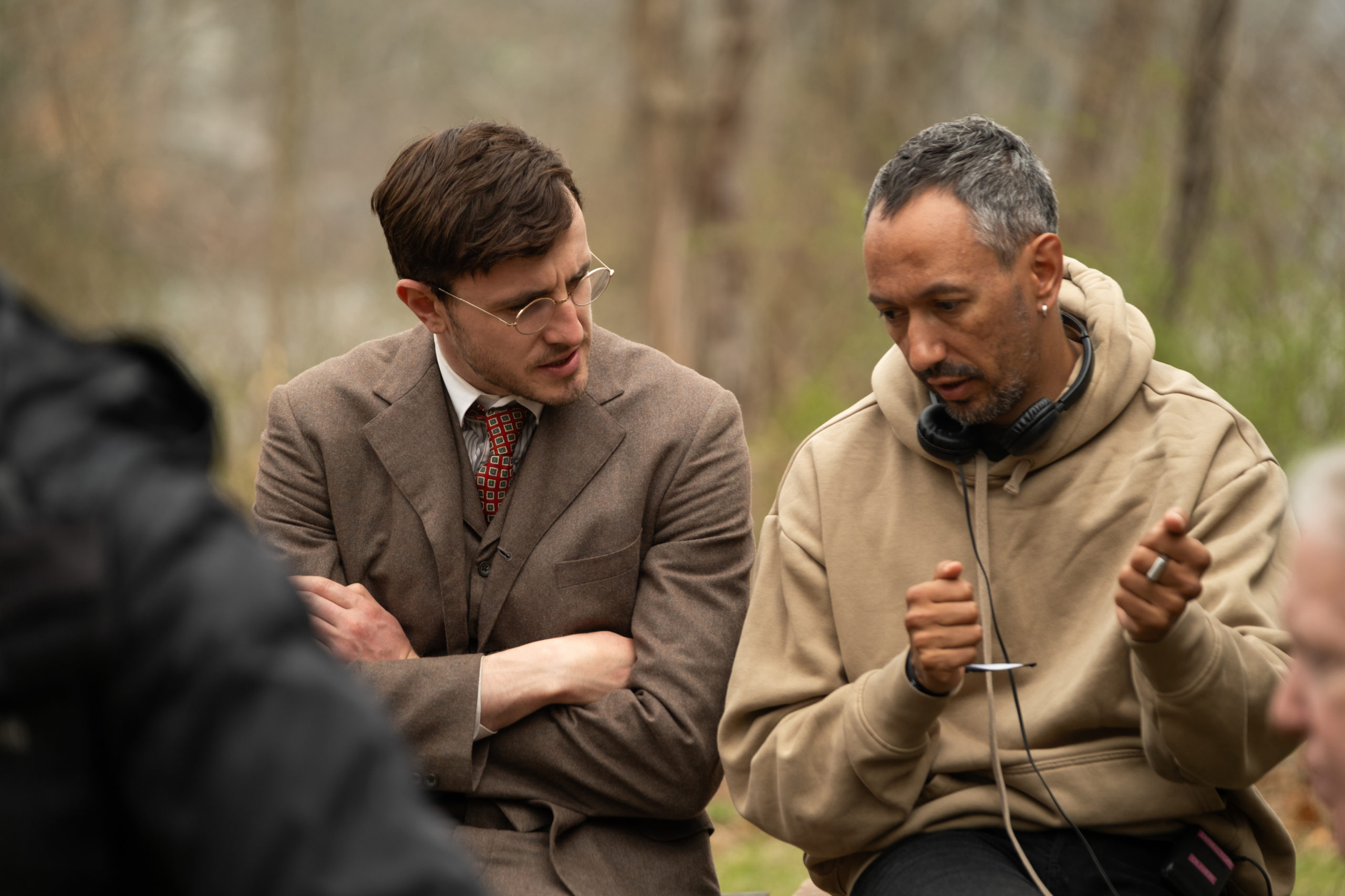
Oliver Hermanus, The History of Sound (2025), from top: Josh O’Connor (left) and Paul Mescal; Mescal; O’Connor; The History of Sound poster; Emma Canning and Mescal; Oliver Hermanus (right) and Mescal on set.
Film stills by Gwen Capistran, courtesy and © Mubi.

